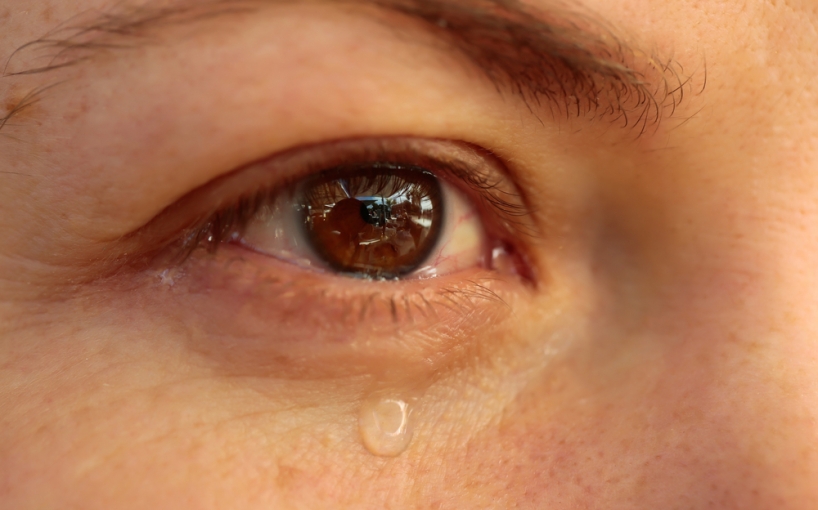Why do we cry?Read 13,823

Scientists have been trying to answer this question for centuries.In 1662, Danish scientist Niels Stensen discovered that tears originate in the lacrimal glands. We have three distinct types of tears: basal tears, reflex tears and emotional tears. Most researchers believe that emotional tears—triggered by strong feelings such as joy and sadness—are unique to humans. While there is a lot of crying research currently underway, we know that emotional tears are influenced by biological, psychological, and social factors.
Tear Triggers
Charles Darwin once declared emotional tears “purposeless,” but since then we have learned that tears facilitate social bonding and promote helpful behavior. Psychologists believe that crying evolved from animal vocalizations. Infants and babies who do not have fully developed lacrimal glands can’t produce visible tears, but still cry audibly to solicit care and assistance. Through childhood and early adolescence, physical pain is also a common trigger for emotional tears, which tends to decrease with age.
Crying As a Social Signal
“The value of crying may be more about the social response it prompts than its physiological effects,” says Lauren Bylsma, PhD, University of Pittsburgh. Dr. Bylsma has conducted multiple studies on crying and found that people were more likely to feel better after crying if they received social support during their tears. Tears that led to a resolution of the tear-inducing event or gave the cryer a new understanding of what was wrong helped the individual feel better. In contrast, people who tried to hold back their tears or cried in a non-supportive social setting (at work, for example) were less likely to feel better after crying.
Women Cry More Than Men
While crying frequency varies significantly across individuals, Dr. Bylsma says it’s well established that women cry about three to four times more frequently than men, and when they do cry it tends to be more intense.
What’s Inside Your Tears?
While we know that all tears contain enzymes, lipids, metabolites and electrolytes, we have more to learn about the chemistry of emotional tears. Some scientists have proposed that these tears contain additional proteins and hormones not found in basal or reflex tears.
Cr. AAO
Tear Triggers
Charles Darwin once declared emotional tears “purposeless,” but since then we have learned that tears facilitate social bonding and promote helpful behavior. Psychologists believe that crying evolved from animal vocalizations. Infants and babies who do not have fully developed lacrimal glands can’t produce visible tears, but still cry audibly to solicit care and assistance. Through childhood and early adolescence, physical pain is also a common trigger for emotional tears, which tends to decrease with age.
Crying As a Social Signal
“The value of crying may be more about the social response it prompts than its physiological effects,” says Lauren Bylsma, PhD, University of Pittsburgh. Dr. Bylsma has conducted multiple studies on crying and found that people were more likely to feel better after crying if they received social support during their tears. Tears that led to a resolution of the tear-inducing event or gave the cryer a new understanding of what was wrong helped the individual feel better. In contrast, people who tried to hold back their tears or cried in a non-supportive social setting (at work, for example) were less likely to feel better after crying.
Women Cry More Than Men
While crying frequency varies significantly across individuals, Dr. Bylsma says it’s well established that women cry about three to four times more frequently than men, and when they do cry it tends to be more intense.
What’s Inside Your Tears?
While we know that all tears contain enzymes, lipids, metabolites and electrolytes, we have more to learn about the chemistry of emotional tears. Some scientists have proposed that these tears contain additional proteins and hormones not found in basal or reflex tears.
Cr. AAO





